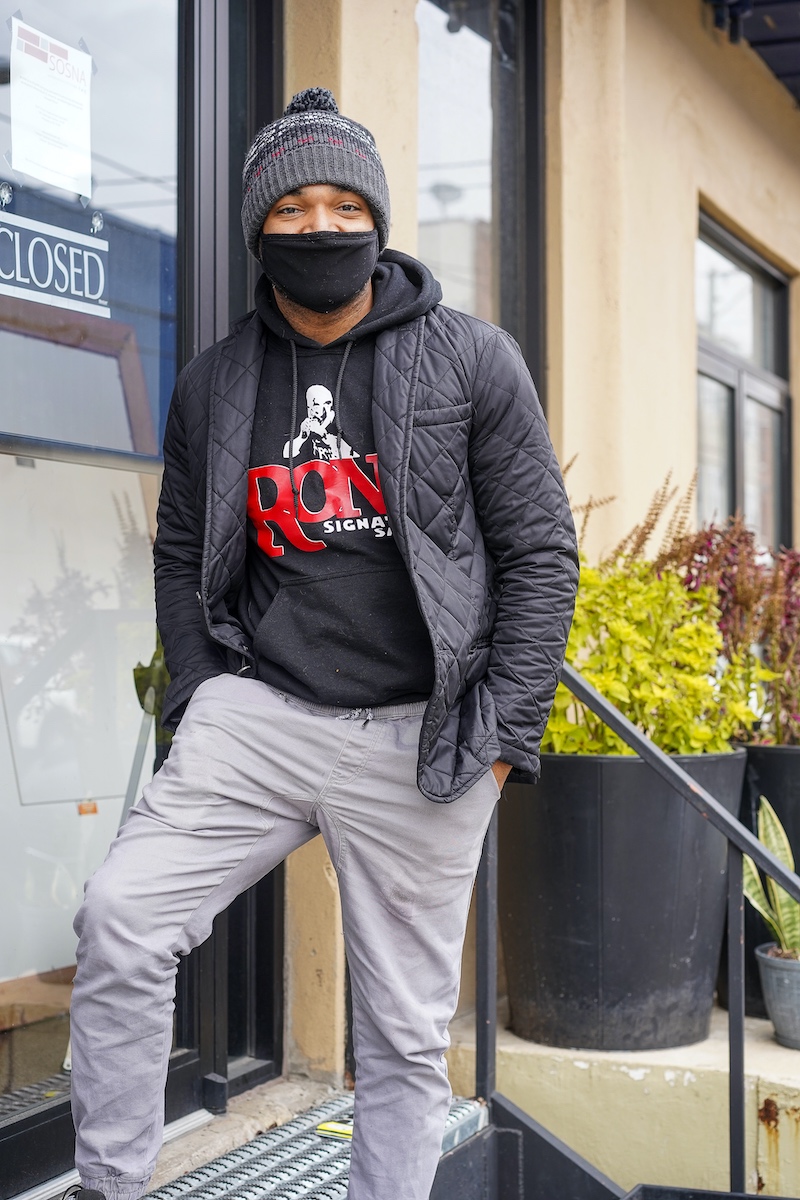Economic recovery after the pandemic is at the top of local policymakers’ minds. A newly formed collective of Black business leaders wants to ensure that financial resources and support do not elude Black Philadelphia.
Black Business Leadership Coalition (BBLC) is made up of 30 biz pros with an aim to increase generational wealth by making the city a better place to grow a business for Black Philadelphians — something widely called for among stakeholders. The organization first came together in 2021 when late entrepreneur Earl Harvey sought ways to empower the Black community. Its stated goal: “To build our economic future, we have set a goal of 25% of the public and private business going to Black owned companies by the year 2025.”
Members include the likes of Regina Hariston, president and CEO of the African American Chamber of Commerce of Pennsylvania, New Jersey and Delaware; Jabari Jones, president of the West Philadelphia Corridor Collaborative; Herman Nyamunga, director of the Community College of Philadelphia’s (CCP) Power Up Your Business accelerator; and Donavan West, president of the Black Business Accelerator.
BBLC’s latest campaign is asking the City of Philadelphia to make a specific $20 million investment in Black businesses, wealth and communities.
Philadelphia is set to receive $1.4 billion in funding as part of the American Rescue Plan (ARP). The organization wants $10 million to be funneled to the Philadelphia Industrial Development Corporation (PIDC) for Black-owned and led projects. Another $10 million would support BBLC’s strategy for assisting Black businesses. That nine-point plan includes implementing an IT workforce program to train 200 people, launching 100 new businesses in growth sectors, and supporting the creation of 750 new jobs from Black-owned employer firms. BBLC also seeks to lead three “major projects” worth more than $10 million, per year.
According to a City spokesperson, plans were already in place for to use an undisclosed amount of ARP funding to support Black and brown-owned businesses.
“The City, alongside our economic development partners including PIDC, is committed to advancing the development and growth of Black and brown-owned businesses while driving inclusive, equitable economic growth throughout Philadelphia,” the spokesperson wrote in an email. “Despite immense challenges regarding the City’s revenues, the one-time injection of American Rescue Plan dollars allows for our budget proposal to make significant investments in small businesses, especially minority-owned businesses, as well as in our neighborhoods and in education from PHLpreK to Community College.”
Technical.ly recently gathered members of the BBLC for a virtual roundtable discussion about how local Black businesses are working through challenges, plus possible solutions. Here’s what’s top of mind for them moving forward.
Black businesses will forge ahead, regardless of external support.

John Childress, director of business development at Mosaic Development Partners and president of the BBLC, is steadfast in his belief that Black business leaders will succeed in spite of pervasive racism. He is committed to helping the BBLC find success with or without city, state or federal funding, and if it does come through, it will be of added assistance. Emphasizing the right mentality among his peers is what matters most, he said.
“We talk about Black Wall Street and heard people say we can’t build it again because white people will tear it down,” he said. “Skip all of that. The main spirit and focus has to be on what exists in us to make something great. That’s why I’m so focused on the mindset. [Racism] is not changing. If you hate me because of the color of my skin, you’re not a rational person and there is very little chance I have to change that when [instead] there could be young Black men and woman that I could mentor.”
The struggles of Black and brown businesses spilled over into pandemic relief.
Dunamis Marketing President Jim Turner believes an investment in Black business opportunities has only been necessitated by the dire circumstances of the pandemic. He said he learned on a phone call with the U.S. Small Business Administration at the beginning of the pandemic that it projected losing 40% to 60% of all small businesses nationwide. For Black businesses, that proved true.

“In that, there were all kind of programs and incentives to help businesses like the Paycheck Protection Program (PPP), but at no time in that process did they ever look at Black and brown businesses differently than they had ever looked at them,” he said. “I saw white friends of mine get $300,000 to $400,000 in PPP funds that had businesses the same size as Black business owners I knew who didn’t.” (In a push for racial equity, five new reforms for COVID-19 emergency loans were announced by the Biden administration during the second round of the PPP earlier this year.)
The way in which the pandemic has created even greater rifts in equality have been well-documented. Turner said he was disturbed to learn that the SBA had adopted a “triage” method of supporting small businesses during the pandemic.
“Triage is a military term, and if you have wounded soldiers, someone assesses who has the best chance to live,” he said. “If your arm or leg gets blown off and you have a 30% chance of living, but someone over there has a hole in their gut with an 80% chance of living, you’re left to die and they put their time and attention into that person.”
Bringing in Black businesses from other places could help boost local Black business growth.

James Haile is a supply management founder and consultant who also teaches in the Goldman Sachs 10,000 Small Businesses program at CCP. He believes the success of Black businesses elsewhere can be the key to local success.
“One of the issues we have in Philadelphia is we’re very parochial — besides being racist,” he said. “There are Black businesses that are successful in tech, construction, but they don’t come to Philadelphia because they’re not welcome. I have a relationship with the Greater Philadelphia Chamber of Commerce and I gave them the idea of going outside of Philadelphia to bring in successful construction and tech companies. It was like a revelation because they had never thought about doing that. It would up the competitive gain and serve as a beacon of hope for local Black businesses to grow. If we wait for something to grow organically in Philadelphia, it would be my grandkids’ kids that would see that business.”
Black entrepreneurs, tech pros and scientists should be celebrated more often.

Technologist and educator Brandon Washington was inspired by Black role models who championed STEM work. He hopes to see different types of successful Black figures draw interest from youth rather than athletes and entertainers.
“As a culture, we don’t put these types of individuals like entrepreneurs, [technologists] or scientists on a pedestal,” he said. “Our youth know more about athletes or entertainers than actual change makers. Our culture has noticed the trends and how society is shifting and the BBLC has emerged.”







